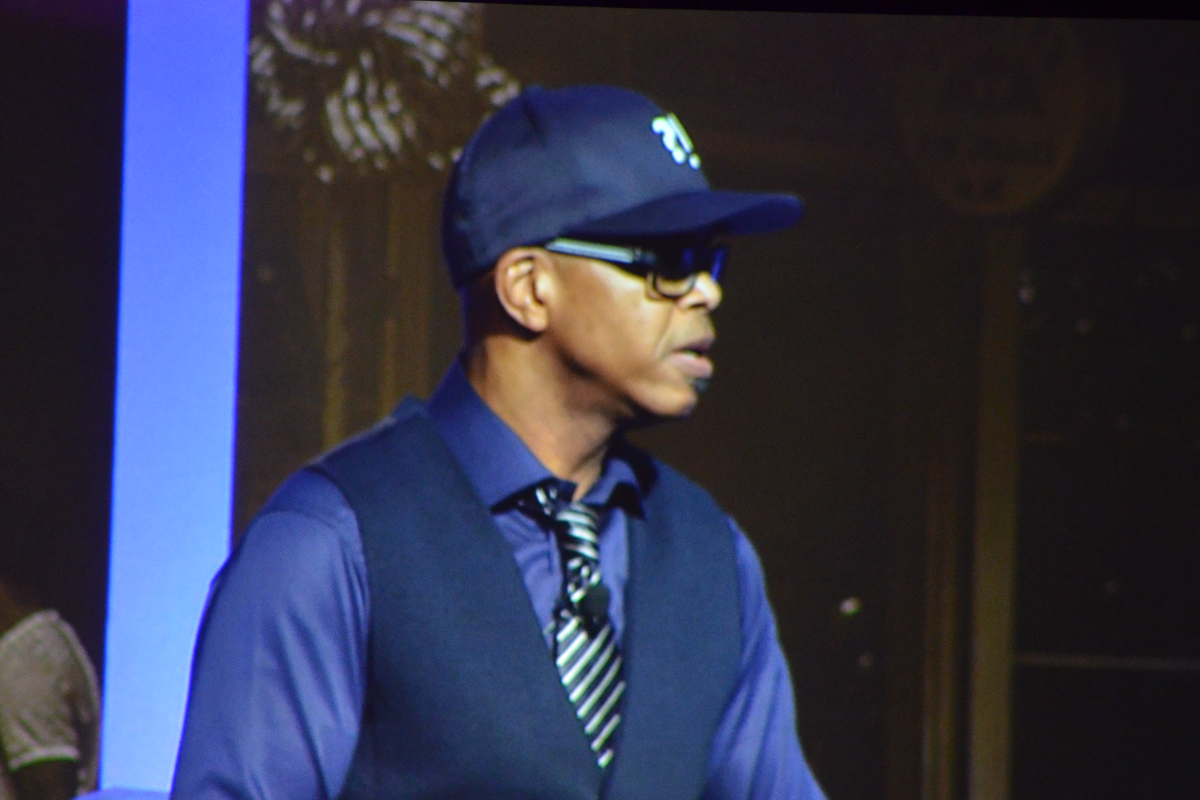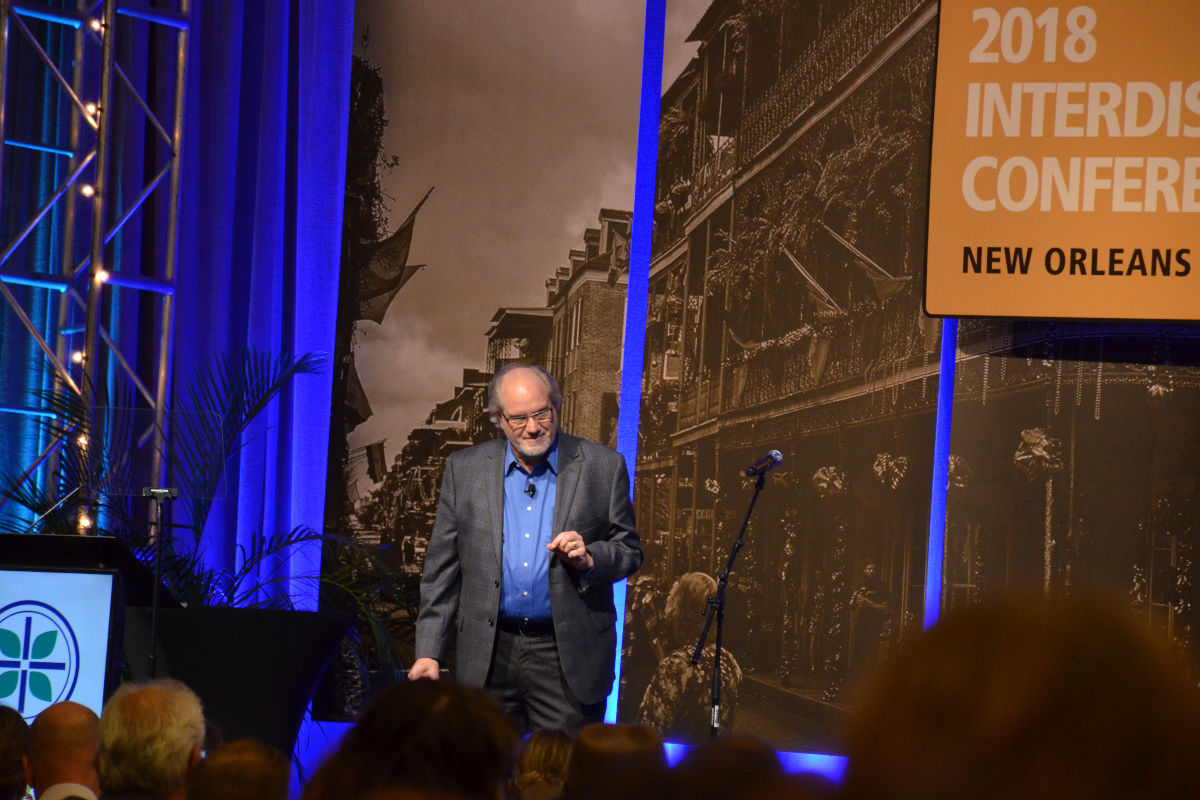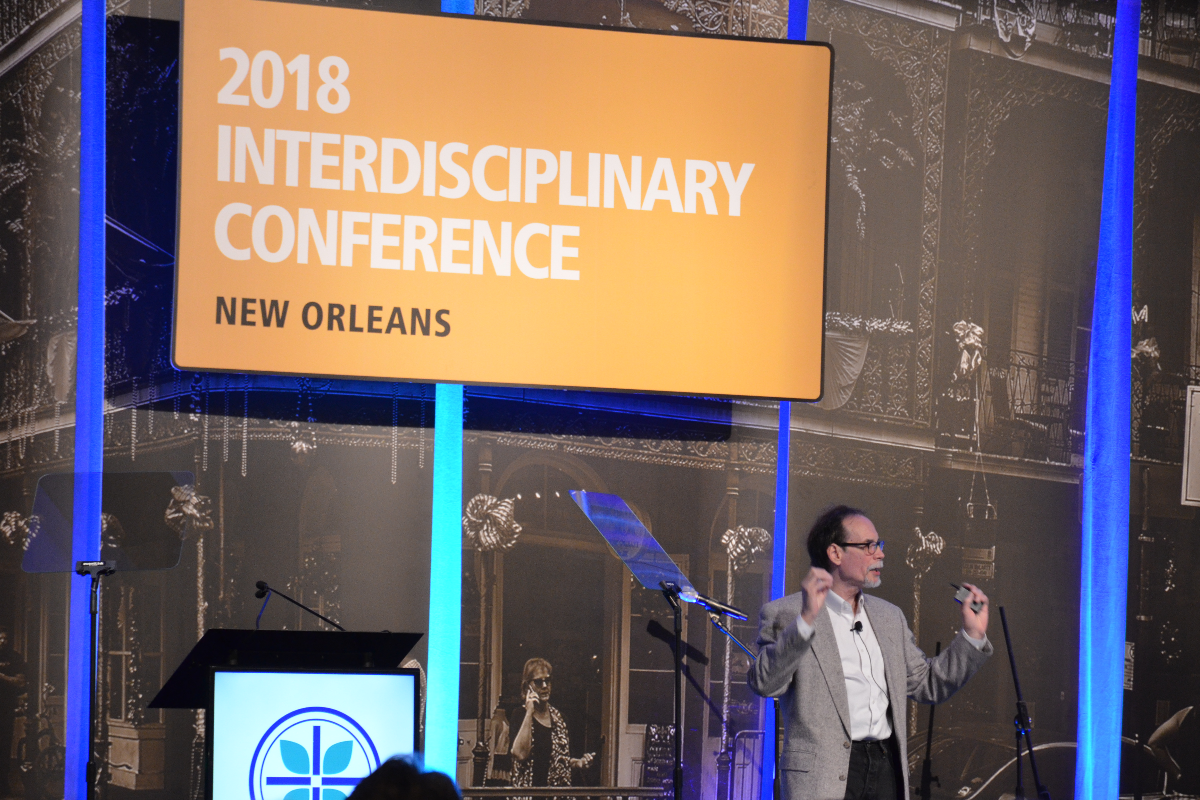Recap of the 2018 NHPCO Interdisciplinary Conference

“A ball can change the world,” Kevin Carroll told the hospice and palliative care professionals gathered in New Orleans, LA for the 2018 National Hospice & Palliative Care Interdisciplinary Conference.
A former NBA trainer and the self-titled Creative Katalyst for Nike, Carroll spoke in the opening plenary about using play, creativity, and innovation to grow and connect. These themes would echo throughout the conference.
In breakout sessions over the course of the conference, the themes ranged from topics like:
- payment models and regulatory updates
- new pediatric hospice techniques and treatments
- shaping a positive patient experience through our care, cultural competency, music, laughter, and alternative therapies
- the need for opioids in hospice and the role of hospice in aiding our communities in coping with the opioid crisis

In the second plenary, John A Mulder, MD spoke on “The Myth of Patient-Centered Care,” describing his own experience as a patient in need of a lung transplant.
He cautioned the room that it is easy to believe that we’re obtaining informed consent simply by providing a list of risks and benefits. But this only scratches the surface.
“You’ll never know what [a patient’s] values are if you don’t ask them,” he explained. “When patients are not able to weigh choices against values, those choices are not informed.”
A talented songwriter and musician, Mulder performed a song he wrote about his experience alongside Grammy Award-winning songwriter Tricia Walker. The two later collaborated with hospice professionals in a breakout session to compose a song about the role of hospice titled "Joy in a Teardrop."

The theme of opioids wove through the conference breakout sessions about key opioid issues in contemporary hospice and providing bereavement support for families who have lost a loved one to overdose. But the final plenary of the conference brought a unique point of view to the crisis delivered by Sam Snodgrass, PhD a behavioral pharmacologist who has lived with an opioid addiction and now serves on the board of Broken No More.
His drug use started off as occasional, then became more frequent.
“The whole time I was telling myself that when I wanted to I could quit,” he said. “I believed that – right up until the time I tried to quit.”
He explained that cravings are a biological function that forces you to focus solely on what you need to survive. The addiction feels like hunger, and when an individual can’t get the drugs they need, it feels like starvation. Just as someone starving for food would break laws to get the sustenance they need, drug addicts who are starving for drugs will break laws and steal from loved ones.
“We’re not trying to get high,” he continued. "We’re trying to make it through the day.”
Unlike others with an illness who are given compassion, support, and the medication they need for treatment, individuals with an addiction are stigmatized.
“Stigma, hate, and prejudice are the biggest obstacle to turning this around, to getting this recognized as a medical condition, and to keep people from dying,” Sam Snodgrass concluded.
His presentation was followed by Diane Snyder Cowan, CHPCA,MA,MT-BC, Hospice of the Western Reserve, Inc. and Patti Anewalt, CRC,PhD, Hospice & Community Care.
After seeing how many families have lost a loved one to addiction, they felt compelled to bring their expertise in bereavement support to their communities. Along with the common feelings of grief, loved ones who lose a family member to addiction feel anger, guilt, and shame – and that feeling of shame makes them reluctant to share their experience.
“Family members may not feel understood except by people who are in their shoes,” Patti Anewalt explained as she encouraged everyone in the room to collaborate with community resources to address the needs in our communities.
If you found this information helpful, please share it with your network and community.
Copyright © 2018 Crossroads Hospice. All rights reserved.




